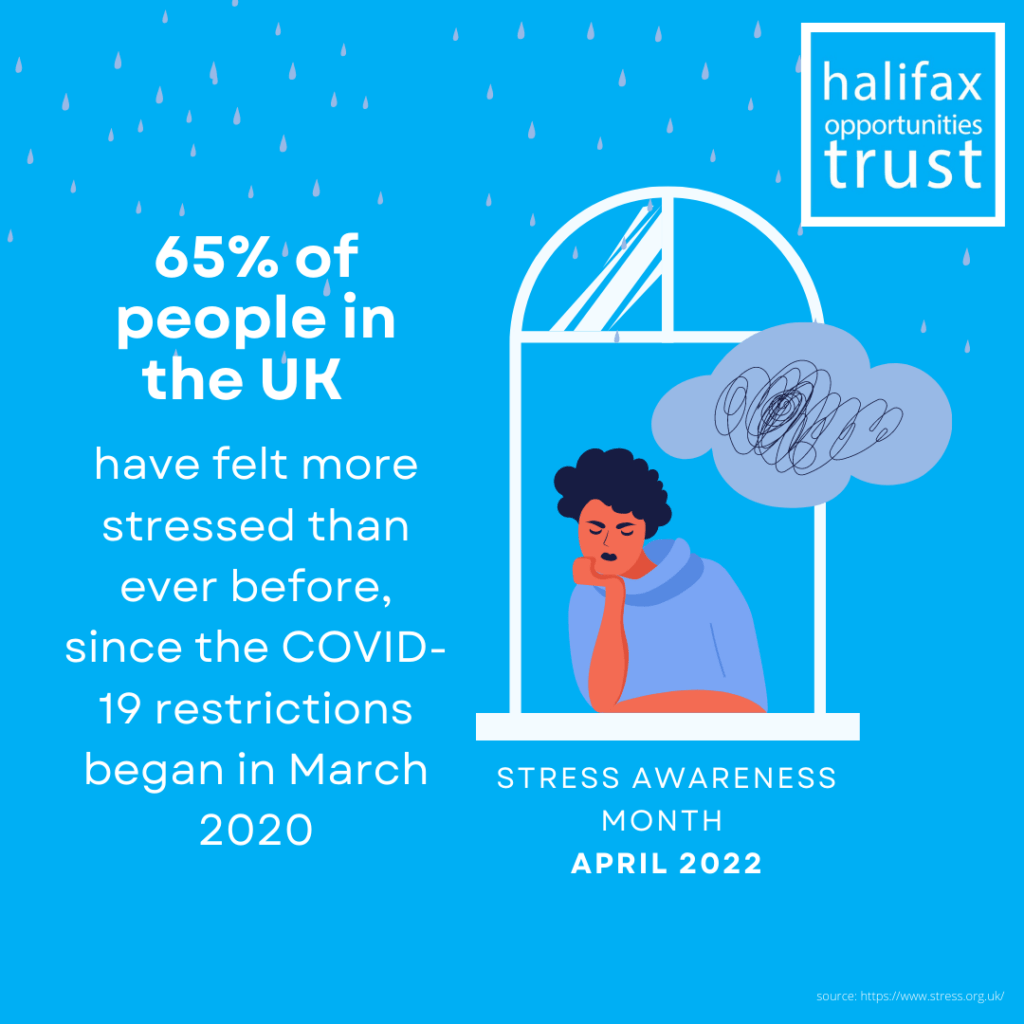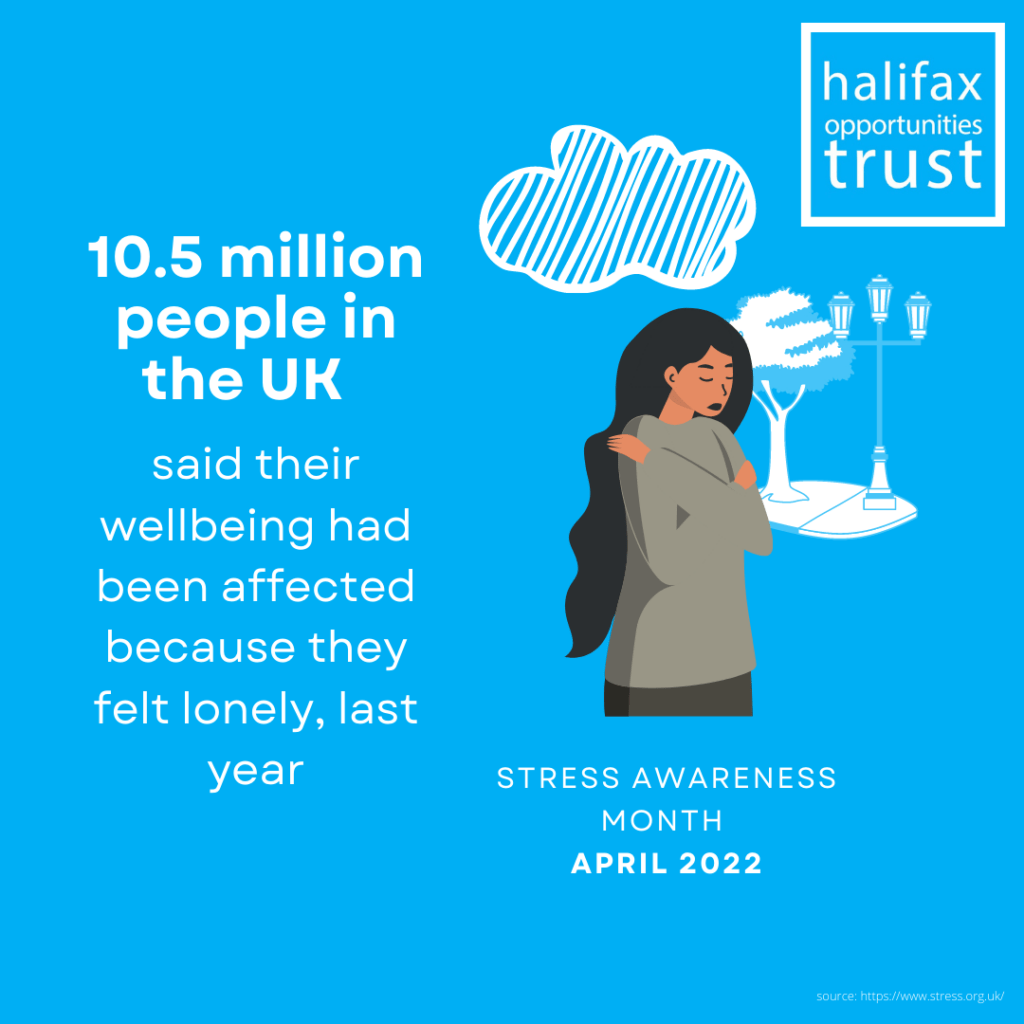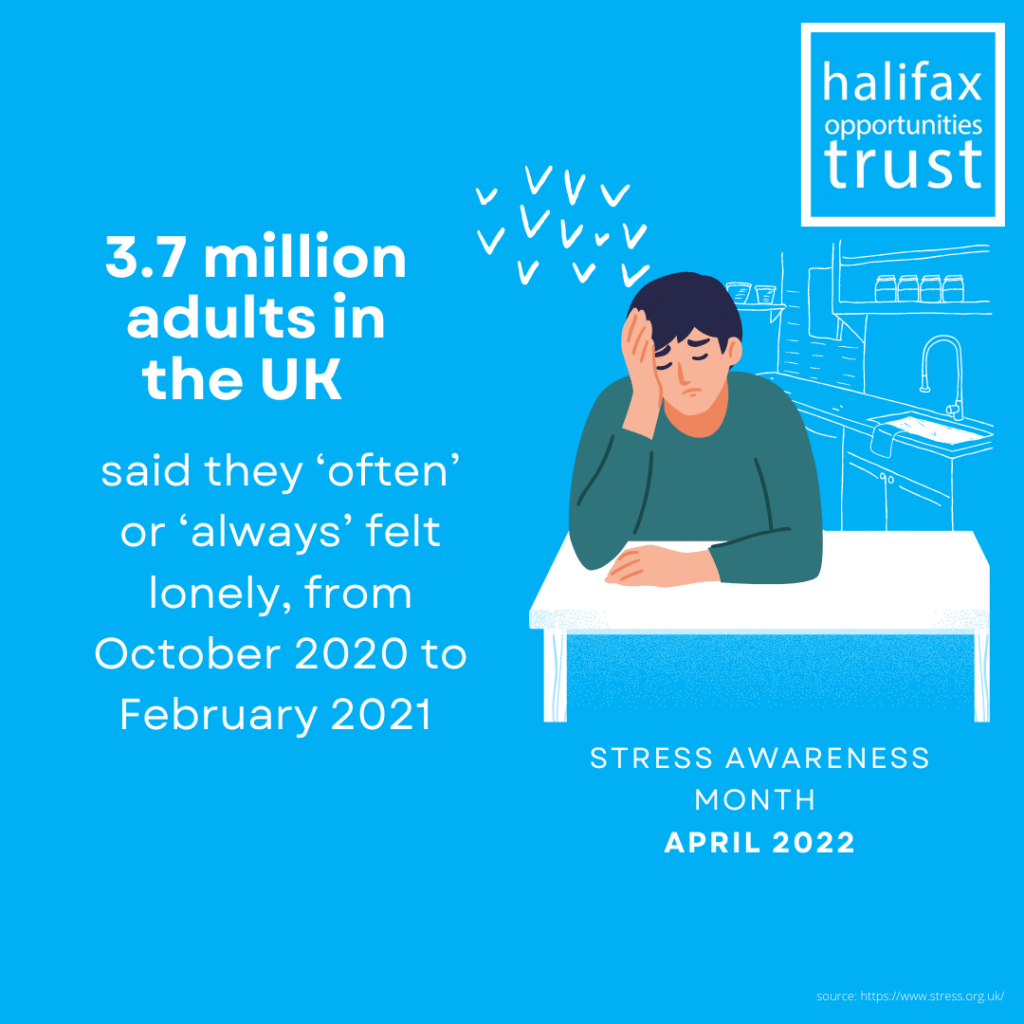
Stress Awareness Month 2022
April is Stress Awareness Month. This year’s theme is community; something that has been hugely affected by the COVID-19 pandemic. Our sense of community isn’t just about where we live and the people we interact with, it’s about having a sense of belonging, connection and purpose. The lack of ‘coming together’ or social cohesion, caused by COVID-19, has had a massive impact on stress and mental wellbeing as a whole.
This Stress Awareness month, we’re speaking to Farrakh Hafiz, our Staying Well Co-Ordinator, to understand how Community can combat stress and the ways community action has supported those feeling lonely in our local area of Park Ward.

A recent study has identified that 65% of people in the UK have felt more stressed than ever before since the COVID-19 restrictions began in March 2020 (1). With a series of nation-wide lockdowns and anxiety around the disease, this figure comes as no surprise and is something we have, unfortunately, had first-hand experience of in our efforts to support local people over the past two years.
The benefits of Community for wellbeing
According to the Stress Management Society, lack of support can cause loneliness and isolation, which in turn lowers people’s wellbeing, impacts mental health and can lead to mental illness. Social isolation is a result of lack of interaction with people or limited opportunities to interact with people, it differs slightly from loneliness in that it is the result of circumstance – loneliness is based on how people feel.

10.5 million people in the UK said their wellbeing had been affected because they felt lonely, in the last year (2). Throughout the pandemic social isolation was a risk factor in causing a feeling of loneliness, which can lead to an increased risk of depression, anxiety, low self-esteem, sleep problems and increased stress. This was mainly due to a reduced sense of community through a disruption in social lives, travel restrictions and remote working.
Research suggests that socialising with others has multiple benefits for our mental health:
- It gives us meaning and purpose
- It boosts our confidence
- It can distract us (temporarily) from worries
- It gives us the opportunity to talk through problems – known to decrease stress levels
We need the support of our communities, if we are to live a happy and fulfilled life.
Staying Well – A lifeline throughout the pandemic
At Halifax Opportunities Trust community is at the heart of everything we do, so we are acutely aware of the benefits and importance community has for wellbeing. Furthermore, diversity and inclusion are big contributors to a sense of community, which is why our Staying Well team was initially set-up. It is a dedicated programme to combat social isolation – this became a lifeline for many people in our local community throughout the pandemic.
According to an American study (3), ‘loneliness is as lethal as smoking 15 cigarettes a day.’ It’s a growing health issue and the pandemic compounded this for many individuals and groups. Our work with local people has predominantly been interactional, where we help individuals through face-to-face or group-based activities. When the pandemic struck, we had to cease these programmes due to the restrictions in place, however, we had a deep concern for how this would impact the wellbeing of our service users.

3.7 million adults in the UK said they ‘often’ or ‘always’ felt lonely, from October 2020 to February 2021 (4). Based on our experiences at the time, these statistics seem reflective. We knew that people were feeling lonely more often and we wanted to offer support in a safe yet compassionate way.
Food for the community
As our usual services were unavailable to our community, we put together a plan to ensure we could reach out to people and show that we continue to care and that we are committed to their wellbeing and safety. We set-up a food parcel service, with our partner agencies St Augustine’s Centre and Himmat Project at our Staying Well HUB on Hanson Lane which took place each day. We delivered over 1,050 food parcels to homes throughout the Park Ward area in the pandemic.
This not only ensured nutritional health but we were able to have safe doorstep chats with people, to monitor mental wellbeing, too.
Befriending for better social connections
Through visiting people door-to-door, we were able to identify vulnerable groups and individuals who would benefit from further support. We set-up a befriending group, where we would regularly call these people to check-in on how they were feeling, but mainly to ensure they still experienced some form of social inclusion. In the height of the pandemic we had made around 2,050 befriending and wellbeing calls – for many people, these calls were the only chance they had to speak to someone all week.
This is a service that continues, even now we are coming out of the pandemic. Not only does it help those in our community, but we have made strong friendships and look forward to our regular catch-ups.
Supporting BAME Communities
During this time, we also worked closely with the local authority. It had become apparent that people from BAME communities were at higher risk to serious illness if they contracted COVID, particularly those with health conditions like diabetes. In response to this we teamed up with Connecting Opportunities and our Staying Well staff, who are trained as diabetes champions, to deliver virtual diabetes awareness sessions to 30 individuals from BAME communities.
A community pulling together
In some aspects, the sense of community was quite strong throughout the pandemic and the resulting lockdowns, as we all pulled together to support one another in any way we could. This is something we have learned from and want to make it a part of our Staying Well programme; we want those who counted on us to remain part of our community and feel supported regardless.
Find out more about our Staying Well Project by clicking on the button below:
